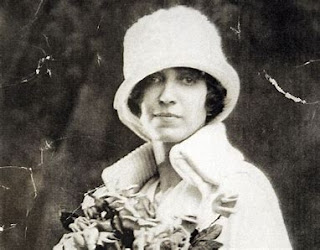“I remember everything about him. He was both
father and mother to me and my brothers and sisters.”
Sonora Smart Dodd
Like Memorial Day, Labor Day, Veterans’ Day, and Mother’s Day,
Father’s Day evolved from a concerted effort by a loved one to honor a group or
individual for their selfless, and often times, unrecognized contribution to
family and country.
Such is the case of Sonora Smart Dodd.
When Sonora was 16, her mother Ellen died, leaving William
Jackson Smart as a single father to Sonora and her five younger brothers.
Sonora’s mother Ellen, herself a widow, had three children
from a previous marriage. In addition, William had been married and widowed
before he met Sonora’s mother. William had five children with his first wife
who were already grown when he became a widower for the second time.
An unlikely inspiration for the Father’s Day movement, William
Jackson Smart was born in Arkansas in 1842. Records there show that he enlisted
as a Union soldier in 1862. That in itself
is odd because Arkansas was a Confederate state.
However, records show that he fought for both sides in the
war.

Driving a supply wagon for Confederate troops, William was
captured in a decisive victory in Arkansas at the battle of Pea Ridge. Rather
than languish in a Union prison, he opted to join the northern cause. As a result, Sonora was eligible to claim membership as a member of both the United Daughters of the
Confederacy and the Daughters of Union Veterans.
William and his second wife Ellen were living on a “coal ranch” in Jenny Lind, Arkansas when Sonora was born in 1882. Instead of mining for coal, William and the family “farmed” it, collecting chunks of coal from the surface and carting it to town for sale. In 1887, they sold the farm for $5000—a hefty sum at the time—and the family move to Spokane, Washington.
Fun fact…the farm in
Arkansas would turn out to be one of the most productive coal fields in the
entire nation!
In 1898, William became a widower for the second time. In
Sonora’s memories of this sad, difficult time, she recalls her father as a
“great home person”, a man who exemplified fatherly love and protection.
It was this selfless devotion that prompted Sonora to action
while attending one of the first official Mother’s Day services at her church
in 1909.
If mothers deserved a day in honor of their loving service,
why not fathers?
In 1910, Sonora brought a petition before the Spokane
Ministerial Alliance to recognize the courage and devotion of all fathers on
William’s birthday, June 5. Though the local clergy like the idea of a day
devoted to fathers, they couldn’t pull something together in so short a time
span. Instead, they settled on June 19th, the third Sunday in June.
On that first Father’s Day in 1910, churches sermons across
Spokane were dedicated to fathers, red and white roses were handed out in honor
of fathers both living and dead, and the governor and mayor issued proclamations...and Sonora found her calling.
With the support of her congressman, she began to lobby for
the creation of a national holiday, determined to give fathers like hers the
recognition they deserved.
But it wasn’t until 1972 that President Nixon finally signed a
Congressional resolution declaring the third Sunday in June to be Father’s Day.
William Jackson Smart, no doubt, would have been proud of Sonora.
to all the special dads, step-dads, grandads, uncles,
brothers, cousins, neighbors, teachers, and friends




No comments:
Post a Comment
Thank you for visiting Sweethearts of the West! We are very sad to require comment moderation now due to the actions of a few spam comments. Thank you for your patience.